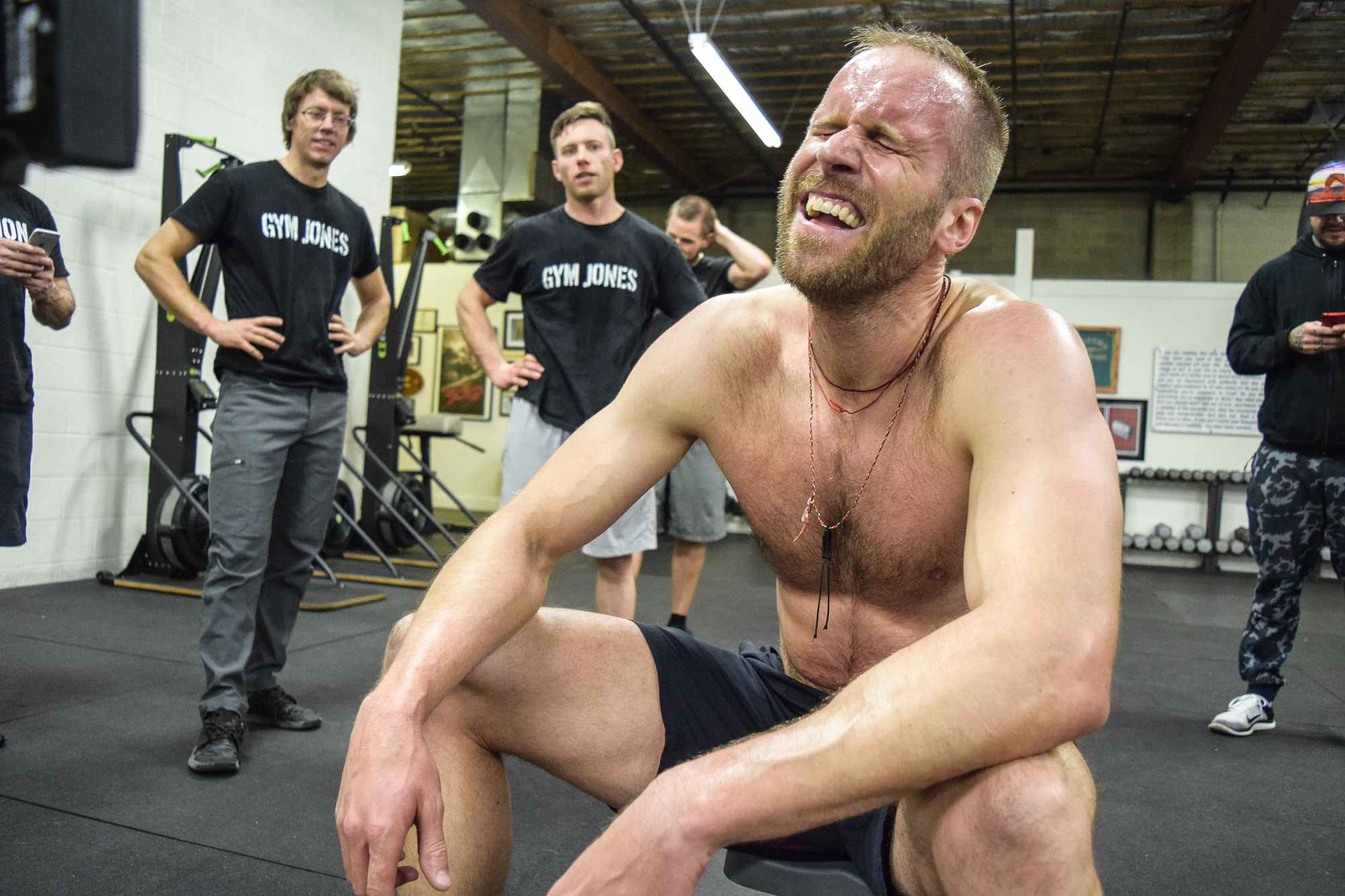By Fredrik Sträng
Climbing an 8,000-meter mountain is considered 20% physical capacity and 80% mental strength. However, research shows that the biggest obstacles often lie not in our bodies, but in our minds. When we push ourselves to the limit, it is rarely our muscles or energy reserves that set the limit – instead, it is the “boss” in our heads that dictates our boundaries. But what happens if we challenge these limits? In this article, Fredrik Sträng, who has summited seven 8,000-meter peaks and set a world record in climbing, explores how we can overcome mental barriers and master our inner selves to reach new heights.
“The ultimate measure of a man is not where he stands in moments of comfort and convenience, but where he stands at times of challenge and controversy.”
– Martin Luther King Jr.
The English Mile Under Four Minutes
Roger Bannister made history on May 6, 1954, when he became the first person to run the English mile in under four minutes. He set a record of 3 minutes and 59.4 seconds at a race on the Iffley Road track in Oxford. Bannister’s achievement was significant because many had previously believed it was physiologically impossible for a human to achieve this.
What is particularly remarkable is that shortly after Bannister’s breakthrough, more runners began to break the four-minute mile. Just 46 days later, Australian John Landy beat Bannister’s time with a 3 minutes and 57.9 seconds finish. This sparked a wave of runners realizing that the barrier was not impossible to overcome, leading more and more athletes to break the four-minute mark.
This phenomenon demonstrated how much athletic performance can be mental, and once a feat is shown to be possible, doors open for others to follow.
Your Brain Sabotages Your Performance
Theoretically, it is impossible to improve upon your results in the second attempt if you gave 100% the first time. This phenomenon is common, so what holds us back? Have we inherited it from the Stone Age? Is it the law of least resistance? Or is it fear? Regardless of the reason, the solution lies in the mind. Therefore, it is crucial to overcome mental barriers to perform better.
I can relate this to my own climbing experience. I was ice climbing with a friend, and we had forgotten the guidebook that describes the difficulty levels of the routes. Suddenly, we felt like pioneers and simply chose routes based on how beautiful they looked. When we got home to the warmth, we checked what we had climbed, and to my surprise, I realized that a WI4 (ice climbing grades range from the easiest, WI1, to the hardest, WI7) had been harder than a WI5+ route. Does this mean we perform better when we have no idea how difficult or exhausting a task really is?
When Professor Timothy Noakes started studying exercise physiology, the general understanding of why a muscle gets tired was that it was either because the fuel ran out or because too much lactic acid was built up. But no one had proven that muscles run out due to a lack of oxygen or fuel. “Studies show that people never recruit more than 50 percent of their muscle fibres, even during intense exercise,” says Prof. Noakes. The theories simply didn’t match reality.
Prof. Noakes concluded that since the brain regulates how you activate your muscles, it must also be responsible for how far, hard, and how much you can push yourself.
So, to what extent can the “boss” in your head affect your performance? Let’s assume you’re asked to push yourself to total exhaustion on a spinning bike. You’re also told it would be great if you could last an hour. What you’re not told is that time passes slowly. After cycling for an hour and five minutes, you’ve been at it for an hour and a half. Prof. Noakes says, “Your mental ‘boss’ establishes a performance limit that has no connection to your actual level.”
“Your brain sabotages your performance,” says Prof. Noakes. “When you feel tired [during exercise], it’s just a feeling. It has nothing to do with your physical condition.”
Eduardo Fontes, Ph.D., found that the limbic lobe – the emotional part of the brain – lights up during increased intensity and as cyclists got more fatigued. The more active the limbic lobe became, the more emotions were tied to the fatigue, and as a result, the cyclists became slower.
Fontes discovered that those who manage to suppress their emotions during exercise – such as stopping thoughts about the pain in their legs or the panic when gasping for breath – almost always perform better. Fontes says, “The key is not to judge emotions as either positive or negative; that’s when your brain sets limits.”
Training to Control the Boss in Your Head
Training a muscle is one thing, but you also need to train the “muscle” in your head if you’re going to perform better. Here are five concrete exercises to help you push yourself to the max and overcome your mental barriers:
- Visualization Techniques
• Exercise: Imagine a specific goal, such as reaching the top of a mountain or achieving a certain time in a running race. Visualize the entire process, including the difficulties, but always see yourself overcoming them.
• Why: Visualization helps your brain mentally prepare for effort, which can reduce the fear of failure and increase your endurance in reality. - Progressive Fatigue Training
• Exercise: Perform workouts where you consciously push yourself beyond what you believe is your limit. For example, when running or cycling and feeling tired, try to continue for an extra minute or add an extra repetition.
• Why: By getting your body and mind used to continuing despite fatigue, you train your mental “boss” to understand that there’s more energy to tap into. - Mindfulness and Present Moment Awareness
• Exercise: Practice becoming aware of your thoughts during physical exertion. When negative or limiting thoughts arise, such as “I can’t do this anymore,” observe them without judgment and let them go.
• Why: This helps break the link between fatigue and feelings of defeat, making it easier to keep performing. - Train to Distract the Mind
• Exercise: During tough workouts, use distractions like music, counting, or thinking about something positive to reduce awareness of physical pain or fatigue.
• Why: Keeping the brain occupied with something other than pain or fatigue prevents it from focusing on limitations. - Positive Self-Suggestion
• Exercise: Replace negative thoughts during training with positive affirmations like “I can do this,” “This is easy!” or “I’m getting stronger with every step.”
• Why: Self-suggestion influences how the brain interprets effort and can help improve endurance by keeping motivation high during challenging moments.
Get Help from Someone Who Pushes You
A good coach/trainer helps you focus on the right things and eliminates distractions. A good coach/trainer knows what you’re going through and supports you when your mind screams “give up,” “I can’t do it anymore,” or “this will never work.” The coach or trainer not only keeps you from wanting to disappoint them but also brings calm and comfort. For example, if your coach sits next to you while you row 2k for time and pretends to “push” you back and forth with their arms raised, it helps you maintain rhythm in your strokes and breathing.
Movie Recommendation: Chariots of Fire (1981).
Good luck!
About Fredrik Sträng: Fredrik, in his leadership role, has climbed seven of the Earth’s fourteen 8,000m peaks, set a Guinness World Record, and lectures on leadership, communication, decision-making, and crisis management.
Best regards,
Fredrik Sträng
Alpinist – Speaker – Coach







